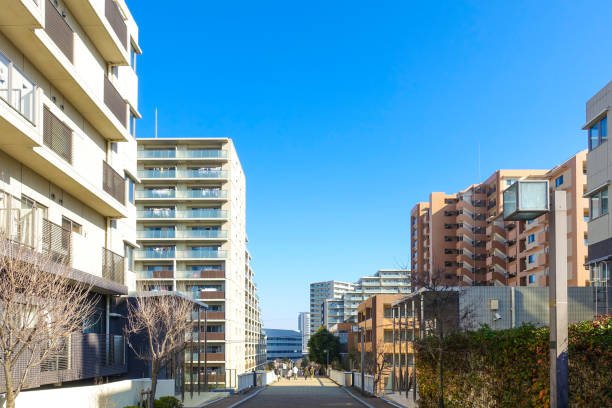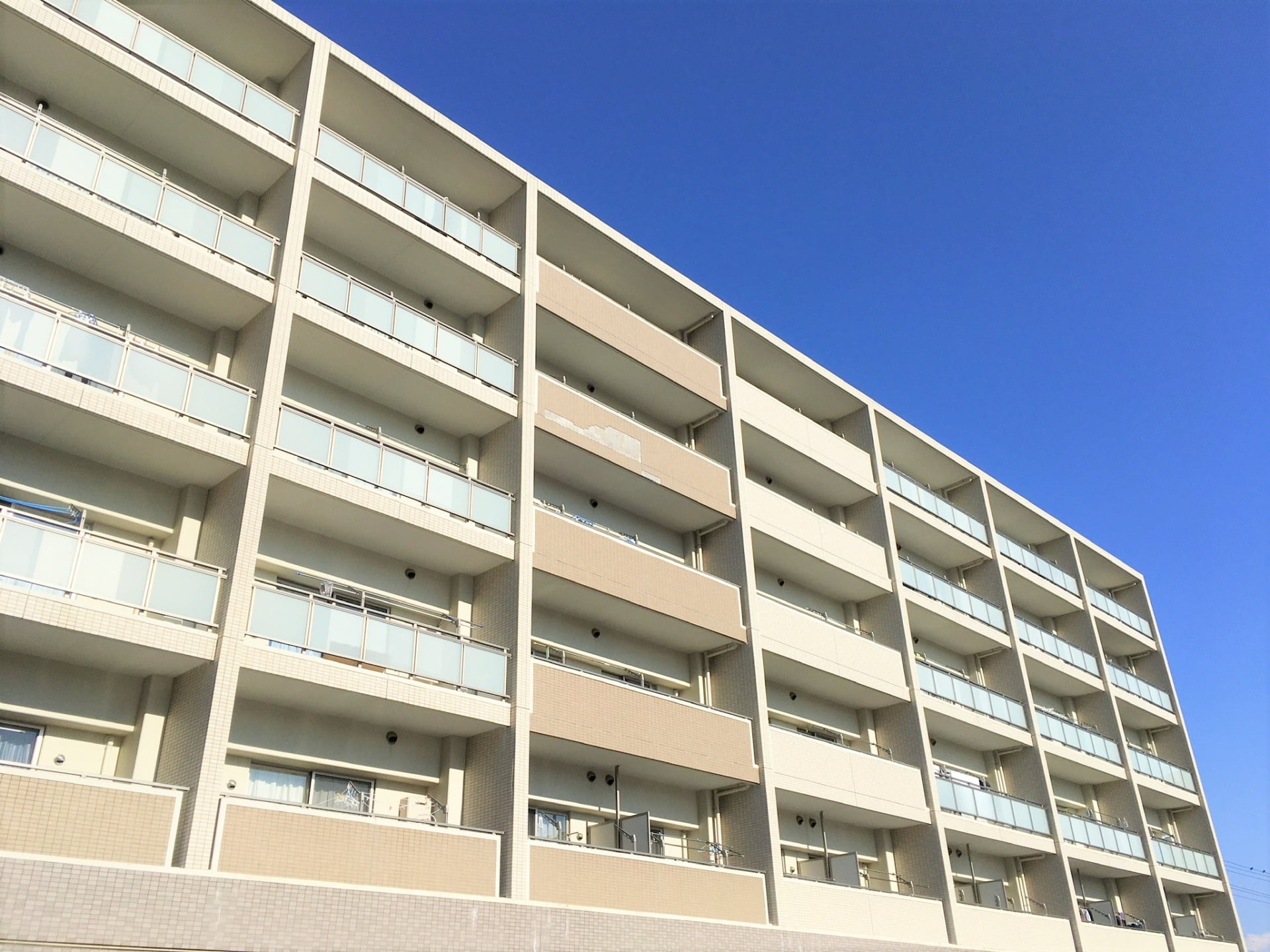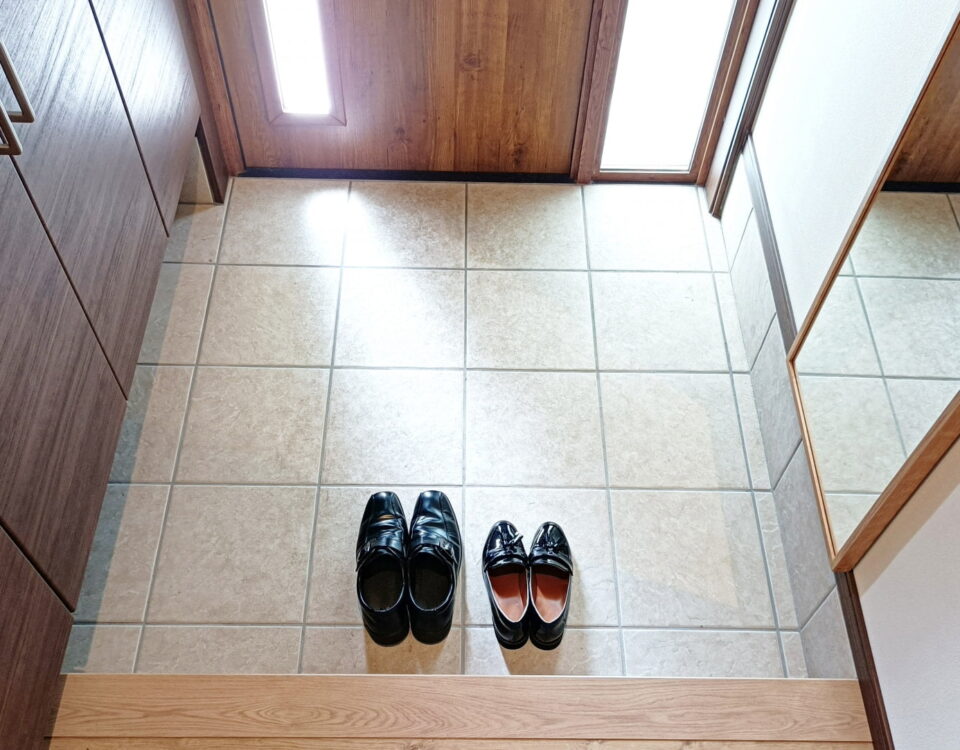There are all kinds of accommodation options in Tokyo, as you would expect from the world’s largest and most crowded city.
If you have already rent an apartment in Japan, the process may be simpler: go to a rental agency, choose a place you like from the available listings and sign a contract. It’s not so simple when it comes to renting in Tokyo.
Renting in Japan as a foreigner: Rent an apartment in Japan as a foreigner
Even if you have wads and wads of yen coming out of your pockets and are willing to spend it on them, you can’t take it for granted that it’s going to be easy and straightforward to rent a house in Japan, especially if you’re a gaijin (foreigner).
So let’s take a step-by-step look at how to get the best possible accommodation, without getting into an unnecessarily expensive contract.
Upfront costs of rent an apartment in Japan (and how to avoid them) | Rent an apartment in Tokyo
Rent an apartment in Tokyo (or in Japan in general) is usually expensive, with initial set-up fees costing five or six times the monthly rent. The efficiency of this business model is questionable, as it makes everyone less likely to relocate, but that’s how it works, so get used to it if you want to rent a house in Tokyo or Japan.
How much does it cost to rent in Japan | Apartments in Japan
A deposit is almost always required (1-2 months of rent), as in any part of the world, but be careful, sometimes landlords will do everything possible to keep it while you move in, trying to charge you for any repairs or renovations.

Fixed costs of renting in Japan | Apartments in Japan price
It is also common to charge an agency fee, which is often difficult to negotiate (between 0.5 and 1 month’s rent).
What drives the price of moving in to crazy levels are other useless expenses, such as the cleaning fee (no one understands how cleaning a two-room apartment costs 40,000 yen), “24-hour life support,” among others, along with key money (1-2 months’ rent), which is essentially thank-you money for letting you rent the apartment in Japan.
Key money was introduced at the end of World War II, when the emperor imposed fixed rental costs in Tokyo to keep the few apartments left standing from getting more expensive. The landlords cleverly decided to introduce key money, and it is imposed even now that apartment prices are no longer fixed. Depending on where you are going to live, you may be able to get a good discount on all of the above.
Liability insurance in Japan | Home insurance in Japan
You also have to pay for liability insurance. The agency will offer you a plan three times more expensive, but on the Internet you will get something more reasonable (4,000 yen per year for a small apartment) in 10 minutes. Don’t let them force you to take out the insurance they offer: it’s illegal.
Guarantor, Guarantor for renting in Japan | Rent an apartment in Japan
Finally, you will need a Japanese guarantor. It is likely that companies and universities offer this service for free (or almost), if not, the rental agency can do it for you (between 0.5 and 1 month’s rent). Some of them may force you to use this service from the Japanese agency, and in this case it is perfectly legal.
Those are basically all the initial expenses, but keep in mind that every month, along with the rent, you will pay a maintenance/common expenses fee (0-¥10,000), which fortunately is always clearly indicated on any agency’s website.

Rent an apartment in Tokyo
Let’s see where to rent an apartment in Tokyo, rental agencies in Japan…etc.
Rental agencies in Japan
To contact a real estate agency, Able, Eheya and Japan Home Search are good places to start.
There is also UR, which tends to offer places with more affordable rents, perfect for “foreigners”! They mainly target young families and seniors, but that doesn’t mean it doesn’t appeal to a wider audience as well. Plus, there are no agency fees.
Other real estate agencies may be specific to a region or city. Type 不動産業者 in your online search and the city (in Japanese) you wish to live in. This will give you some choices of possible real estate agents in the area.
- An example: 不動産業者東京都 (real estate agents in Tokyo) This would be Tokyo 東京都, you add it to what we told you before 不動産業者 and so we get what we are looking for, if you want to search from somewhere else, just change the kanji of Tokyo for the appropriate ones of the city you want.
Online Rental Sites in Japan | Online Rental Sites in Japan
The Internet is really a godsend when it comes to finding accommodation in Japan. It is the perfect starting point to search before you leave your country, always do your research beforehand to avoid surprises, and then you can search again.
Online searches can also help you familiarize yourself with the main real estate agents in the area of Japan where you want to live.
Most sites are easy to use and, more importantly, to understand. You can filter by price, size, number of rooms and even the age of the building. It’s perfect to save time and stop searching through a bunch of options that don’t fit your needs. You can also sign up to receive notifications when a new property is uploaded to the website, very handy!
Websites for rent an apartment in Japan | Rent an apartment in Japan | Find accommodation in Japan
Here is a list of websites to find accommodation in Japan on the Internet. The first two websites listed are our favorites for their wide selection of locations. And keep reading our next section on the best agencies for short and long term options.
Note: you may hear/see the word manshon a lot while looking for a house. In Japanese, it is an apartment in a large building, not a huge house per se, as in English (it is not a mansion).
Short-, medium- and long-term accommodations in Japan
Let’s take a look at short-medium and long-term accommodations in Japan.
Short-term stays in Japan
As you probably came to the conclusion after reading about the upfront costs, paying all those upfront fees is not worth it if you plan to stay for only a few months.
Luckily, there are also some short-term accommodation options (no key money): Sakura House, Oak House, Leo Palace are some of the top ones.
You will have a furnished room or a small apartment, without having to pay crazy money, and with the support of English speaking staff. However, all this comes at a cost: the rent is usually 50% more expensive than normal apartments, so this option is not recommended if you plan to stay for a long time, as you will end up spending a lot more on your rent in Japan in the long run.
Long-term stays in Japan
If you’re planning a longer stay, it’s worth taking the time to find a good, reasonably priced apartment.
Websites geared toward foreigners – the ones you find by typing “apartment rentals in Tokyo” (or, more cleverly, “cheap apartment rentals in Tokyo”) into Google – are far from the best in this case.
The smaller offer and higher prices make them worse than sites aimed at Japanese renters, such as Suumo or Chintai – which are in Japanese, but Google Translate, fortunately, is of much use if you can’t read it.
The disadvantage is that you will waste a lot of time looking at apartments that you will not be able to rent. Why? Because in Japan there is no law against discrimination, so landlords can perfectly well refuse foreigners.
However, the money you will save with these websites and related agencies is well worth it, some called “sorry, no gaijin”, when compared to those mentioned above.
Finally, UR (Urban Renaissance) apartments tend to be cheaper than average (mostly due to lower moving costs), although availability can be quite limited.
Both UR and Suumo actually offer “suicide/fatal accident apartments” (Jiko Bukken) at surprisingly reduced prices, usually half the average cost in a given area. In addition, you will find that they are always completely renovated to make them more attractive. With this option there is only one thing to keep in mind, are you afraid of ghosts?
There are many large apartment blocks near Tokyo Bay, such as some near Toyosu.
Where to live in Tokyo | How to live in the center of Tokyo
Living in central Tokyo is, of course, pleasant, especially in the Shibuya area. Fortunately, prices vary quite a bit depending on the neighborhood.
Since trains in Tokyo don’t run 24 hours a day, it’s a good idea to live reasonably close to where you like to go out so you don’t have to worry about the last train. Or you may want to live close to where you work on a daily basis to reduce travel time and train costs. Try to find a good balance.
If you’re on a tight budget, choose a convenient train line, not a neighborhood. The further you get away from the center of Tokyo, the cheaper the apartments will be. In fact, you can save quite a bit, especially on upfront costs (much more negotiable).
Being on a good train line will mean that you will be able to leave quite late from central areas, and you will avoid living near random stations on train lines that are not connected to nice trendy places.
In any case, living away from the station will save you a lot of money: residents pay a premium for being close (5-minute walk), and prices drop considerably the further you get. And since you probably won’t be going to the gym every day, a little walking will be good for your health.

Moving season in Japan | Cheap apartments in Japan
To get the best deals, you need to be aware of the “moving season in Japan”.
In Japan, people usually move in April, at the beginning of the fiscal year, when they usually get a new job or are assigned to a different office in the company. The same is true, but to a lesser extent, in October.
This basically means that you should not get your own apartment in these months, nor in the months immediately preceding. The agencies are quite optimistic, and will take it for granted that they will be able to fill any of their apartments (although it is not happening at all, Tokyo and the Kanto region have about 15% empty rooms), so they are not going to be willing to negotiate.
Sometimes, it is much cheaper to stay a little longer in a temporary place to wait until the moving season is over.
Home sharing in Japan | Apartment sharing in Japan
Sharing an apartment in Japan (i.e. having a roommate) in Tokyo is uncommon. Even among students it is much more common to get a small one-room apartment.
There may be many reasons, which we won’t investigate, but in general if you don’t already know someone who is willing to share an apartment, you are out of luck on that option, another thing would be if you were several friends going to Japan, you can share house and expenses.
There are shared houses (like the Sakura House mentioned above), but they are still quite different from what we westerners are used to, being more like hostels. Also, the larger shared houses are usually nicer than the one-room ones, as they have a proper kitchen and a common area to hang out in.

Age of the building in Japan
The age of the building is going to greatly influence the rental price. The Japanese, especially those over 30, are willing to pay more to get a new apartment, and this, along with the earthquakes, justifies the cycle of demolition and rebuilding that you see everywhere in Tokyo.
In general, getting an apartment between 10 and 20 years old (in most countries it would still be considered new) will save you good money and allow you to live quite comfortably. Older ones (built in the 1980s) may lack a modern look, but many are far from shabby and can save you even more. Of course, it is not advisable to buy anything built before 1981, when earthquake safety laws became more restrictive.
Rent an apartment in Tokyo, Negotiation
Finally we get to the important part: how to get the best deal once you’ve chosen your new apartment. It may be harder or easier depending on where and when you want to move, but there are some points that will work in general.
The main thing, negotiate on extra expenses, not rent. If you’re lucky, you’ll get a 5% discount on rent, but key money (free money given to the landlord while moving out) and many other useless moving fees can usually be eliminated if you don’t move out in April.
Depending on where you are moving into, you may be able to do without all of them except for the security deposit (check to see if you are getting it back, sometimes it is just a name for a moving fee and is not returned, so check carefully) and the cleaning fee that they have theoretically paid in advance.
Finally, for some reason, all agencies have access to all Tokyo apartment listings. If you are interested in another agency’s listing, your current agent will probably let you rent through them.
What happens, however, is that you will have to pay an agency commission to both parties (approximately 1.5 months of the rental cost). Talk to different agents, check which apartments they actually manage and you will avoid wasting money (which you will then need to furnish your apartment).








